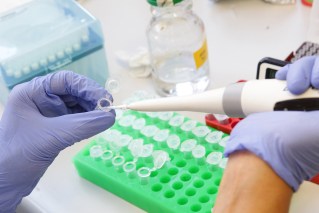Money isn’t everything: Dominican Republic tops world mental wellbeing rankings


People in the Dominican Republic report having the best mental health out of 64 countries. Photo: Getty
A dramatic worldwide decline in mental wellbeing since the beginning of the pandemic shows no signs of recovery, according to a new report – but some countries are doing better than others.
Sapien Labs’ fourth annual Mental State of the World Report found mental wellbeing has remained largely static across the world since 2021, as have the rankings of countries.
For 2023, Latin American and African countries topped the rankings for the best mental wellbeing, while several Western countries – including Australia – proved to be much more distressed.
The results were based on each country’s Mental Health Quotient (MHQ), which was determined using by assessing 47 elements of mental wellbeing.
The Dominican Republic recorded the highest average MHQ at 91, followed by Sri Lanka (89) and Tanzania (88).
Scoring the lowest MHQ was Uzbekistan (48), then the UK (49) and South Africa (50).
Australia had the sixth-lowest MHQ score (54), falling even lower than war-torn countries such as Ukraine (60) and Sudan (64).
Researchers said the results showed greater wealth and economic development do not necessarily lead to better mental health.
The lack of change in the results since 2020 also painted a “discouraging picture” of post-pandemic prospects.
The report said further research was needed on whether the dreary international mood was due to a permanent psychological impact of social distancing and isolation, or whether shifts in the way people live and work – such as increased consumption of over-processed food and remote work – were to blame.
“It is important that we work to understand why there is no recovery,” the report stated.
“As a collective humanity we otherwise risk normalising a substantially diminished state of mental wellbeing that can have disastrous consequences for the long-term prospects of society.”
Difference between good and poor results
Sapien Labs’ rankings for the specific percentage of people within countries that reported being distressed or struggling were similar to its MHQ rankings.
Sri Lanka recorded the lowest percentage of distressed respondents with just 14 per cent, while the UK was home to the highest with 35 per cent.
Australia had the fourth-highest percentage of distressed or struggling people (33 per cent) out of the 65 countries surveyed.
The results fly in the face of the common perception that wealth automatically enhances wellbeing, but researchers found there were a number of other factors that affect a country’s mental health ranking.
The three key areas of concern were the age of a child gets their first smartphone; the consumption of over-processed food; and the strength of family bonds.
Sapien Labs researchers previously found that for today’s 18-24 year olds – the first generation to be born into a world of smartphones and social media – the younger they were when they got their first smartphone, the worse their mental health outcomes were in adulthood.
Owning a smartphone since a young age drove symptoms such as suicidal thoughts, feeling detached from reality, and feelings of aggression towards others.
The average age of first-time smartphone owners ranged between 14 and 16 in Latin America and Sub Saharan Africa, while children in the “core Anglosphere” tended to get their first smartphone at 11 years old.
Regarding food, researchers found more than half of people who eat ultra-processed food daily are distressed or struggling with their mental wellbeing, compared to just 18 per cent of those who rarely or never consume ultra-processed food.
Similar to the age of smartphone ownership, less developed countries tend to have lower ultra-processed food consumption, while up to 70 per cent of food consumption in countries like the US and UK are ultra-processed.
Finally, the report stated the risk of mental health challenges in adulthood are four times lower if you have close family relationships.
Wealthier countries reported the lowest closeness to many adult family members and the least stable and loving childhood homes.
“Altogether this suggests that greater wealth and economic development does not necessarily lead to greater mental wellbeing, but instead can lead to consumption patterns and a fraying of social bonds that are detrimental to our ability to thrive,” the report stated.
“This cautions strongly against purely focusing on economic metrics as measures of human progress and wellbeing.
“Rather attention must be paid to how wealth is created and used to drive a path of holistic prosperity that is aligned with human wellbeing.”








